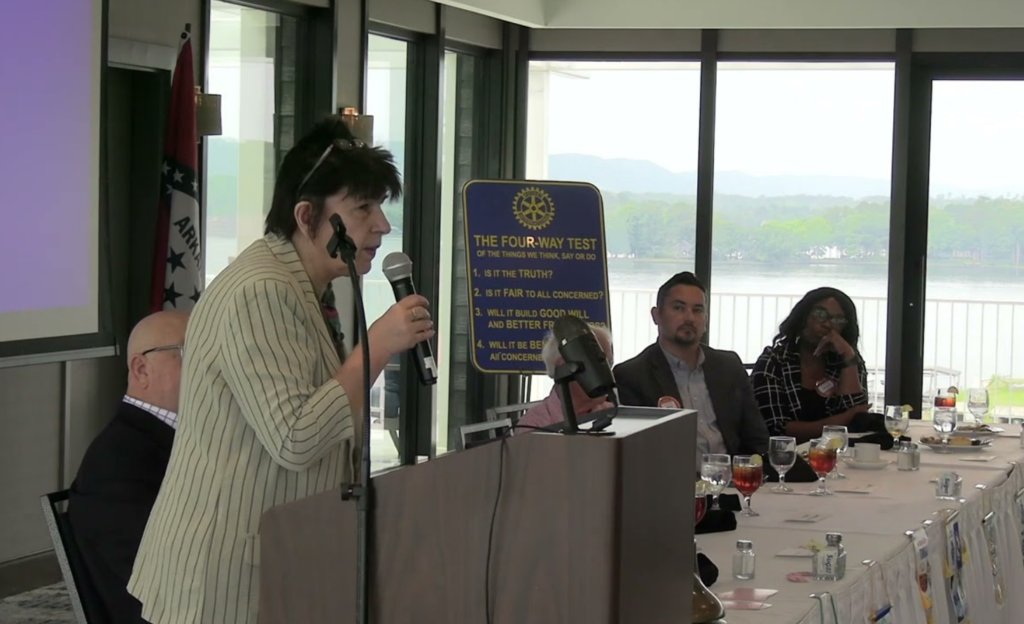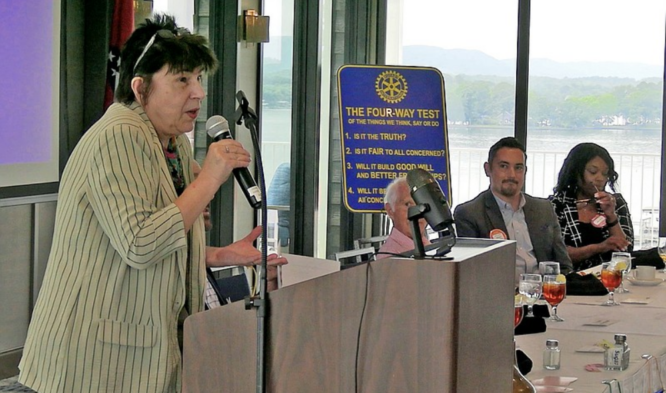A computer science professor at the University of Arkansas in Little Rock argues artificial intelligence is positive for the future despite reasonable worries.
At Wednesday’s Hot Springs National Park Rotary Club luncheon at the DoubleTree by Hilton Hot Springs, Mariofanna Milanova, a 20-year UALR professor with a master’s in expert systems and artificial intelligence from the Technical University of Sofia, Bulgaria, discussed AI’s progress and outlook.
“There are two parts of AI,” she remarked. “People accepting and rejecting.” I wish to positively educate others. I’ll be honest—there’s the terrifying aspect, the bad side, and the positive side.”
She cited AI’s propensity to create fake news and other material and job loss as worries. She said that individuals adapt to technology.

The letter claims they endanger mankind.
She asserted John McCarthy, Marvin Minsky, Nathaniel Rochester, and Claude Shannon presented AI at the 1956 Dartmouth Summer Research Project.
“The parts and algorithms were built for many, many years, and now this has become popular largely due of ChatGPT. It’s not simply ChatGPT. Statistics reveal that everyone uses AI algorithms 20 times a day in America and maybe worldwide. “You have cellphones, smart cars, or even without smart cars, GPS, stock market predictions,” she remarked.
OpenAI’s Generative Pre-trained Transformer massive language models power ChatGPT, an AI chatbot. It was customized for conversational applications utilizing supervised and reinforcement learning.
Elon Musk and other global tech heavyweights signed an open letter earlier this year calling for a six-month freeze on the creation of systems more powerful than GPT-4, which can have humanlike conversations, write music, and summarize complex papers.
Milanova disagreed with many of the letter’s concepts, saying the technology is “not some one invention” but numerous things.
“AI will not kill us,” she declared.
AI ethics are crucial
“I did an interview about a musical record studio that they asked me how do people that generate music compete with people that are really spending months and years composing music?” she said.
It’s unethical. Writers too. We have computers that can compose a book in three minutes, saving authors time. Articles, anything.”
She welcomed increased monitoring and protection. She has two patents and over 120 publications, including 53 journal papers, 35 book chapters, and several conference papers.
She added professors should challenge pupils to make sure they comprehend and don’t plagiarize if they use AI programs to write term papers.
“Copying is watermarking. Educators and parents now have a difficult job. You cannot leave kids to technology and expect them to learn. Also, trust. It’s laborious.”


